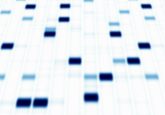License deal for prostate cancer test announced
New urine test was demonstrated to be twice as effective as current method for prostate cancer detection.
The University of Surrey (Surrey, UK) and Randox (Crumlin, UK) recently announced a license deal to market a new test for the early detection of prostate and bladder cancer. The simple urine test was developed by scientists at the university by focusing on the EN2 protein that is produced by these cancer types.
Hardev Pandha, Professor of Medical Oncology at the University of Surrey, commented, “We are looking forward to working with Randox on this product. This new test could lead to faster detection that could save hundreds of lives, and also offers the potential for huge cost savings. Unlike in previous tests that require invasive procedures to produce a trigger, our studies show that the EN2 test immediately shows up and that levels of the protein correlate strongly with how far the disease has spread. This may then help a doctor assess whether the disease may be safely and actively monitored, or whether it has spread more widely and requires treatment.”
The current 30-year-old PSA blood test that is used to detect prostate cancer was demonstrated to be only half as effective as the new EN2 assay in both European and US clinical trials. As part of the deal, Randox will manufacture and market the test, and the University of Surrey will supply the key materials needed.
Peter FitzGerald, Randox Laboratories Founder and Managing Director, stated, “With prostate and bladder cancers being among the top ten common causes of cancer death, accurate diagnosis is incredibly important to inform the type of treatment. We are therefore delighted to be working with the University of Surrey to develop and commercialize an EN2 biomarker. The concept of personalized medicine will shape the future of diagnostics and healthcare in general. Building relationships between academics, clinicians, industry and, of course, patients, demonstrates how basic science discoveries made at the laboratory bench can be translated into clinical products that have real tangible impact for patients, the economy and society in general.”
The collaborators hope that the test will be made available in GP surgeries across the globe by 2015.
Source: License deal signals major breakthrough in the battle against prostate and bladder cancer.






